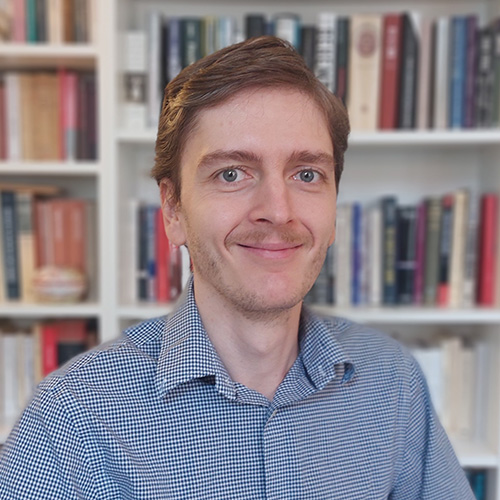
Formally trained in political science and economics departments, Nicolae Bîea works as a political theorist with a multidisciplinary approach. His research addresses the entanglement of economic ideals with modes of democratic governance and problems of human finitude. It combines historical analysis of economic theories and policies, careful exegesis of political and economic texts, and conceptual analysis of key economic and philosophical ideas.
His doctoral dissertation, Dialectic of Scarcity: Economy and Finitude in Late Capitalism, critically examines how narratives of scarcity and abundance shaped twentieth-century visions of democratic citizenship. The project explores how various dimensions of human finitude (e.g., temporality, mortality, natality, plurality, interdependence) came in the twentieth century to be interpreted as “economic” in nature and integrated into the construction of economics as a discipline concerned with identifying and overcoming the limits of human action. This investigation uncovers both the utopian core of the ideal of generalized affluence, which came to predominate across the capitalist world in the postwar era, and its constitutive exclusions: the groups, activities, and processes whose concealment served as the condition of possibility for anchoring modern democratic citizenship in normative conceptions of the affluent society.
His article “The Economy as Utopia: Keynes, Bourgeois Socialism, and the Promise of Abundance,” can be read in the Fall 2024 issue of Critical Historical Studies.
 THE UNIVERSITY OF CHICAGO
THE UNIVERSITY OF CHICAGO

